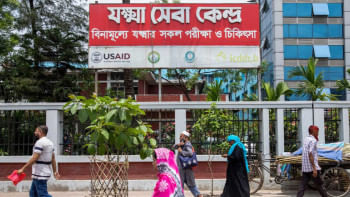Hundreds of Asian women sex slaves in Australia
Australia's top crime agency yesterday revealed it was examining allegations that hundreds of young women were being lured from Asia with promises of work and then forced to work as sex slaves.
The Australian Crime Commission (ACC) said trafficking in sex slaves was probably linked to the people smuggling operations run by organised crime syndicates that have been the focus of border control efforts in recent years.
ACC chief executive officer Alastair Milroy told a parliamentary committee that his agency began gathering intelligence on sex slavery in the last month and planned to report its findings in September.
The investigation comes as the Australian government faces rising pressure to stamp out sex slavery. There have been reports that children as young as 12 are being forced into prostitution.
New South Wales state minister for Women Sandra Nori said last week that many Asian prostitutes were offered well-paid work in Sydney and then held in brothels and forced to "pay off" debts of up to 50,000 dollars (32,500 dollars US).
"These women and children are literally being held hostage by predators who take their passports and enslave them into prostitution," Nori told the NSW parliament.
The women are believed to come from across Asia, including Thailand, Cambodia, China, Korea and Vietnam.
Australia passed laws designed to outlaw the trade in sex slaves in 1998 but critics question why there have been no charges or prosecutions in almost five years.
Kathleen Maltzahan, a spokeswoman for welfare agency Project Respect, said at any one time there were probably a thousand women in Australia working as sex slaves.
But she said those who were brave enough to complain were not treated seriously by police and many were a deported soon after being apprehended because they were in Australia illegally.
"They're told it's not true what they're saying then they're invariably deported from the country, told Sky News.
"Many more women would come forward if they were offered the slightest amount of protection, now they have nothing."
The problem was highlighted last month by a New South Wales state coroner's report into the death of a 27-year-old Thai woman, Puongtong Simaplee.
She died in an immigration detention centre in 2001 from heroin withdrawal symptoms. She had told authorities she was brought to Australia as a 12-year-old forced into prostitution.
The case prompted deputy coroner Carl Milovanovich to urge authorities to do all they could to stamp out the trade in young women.
"(It) is not only illegal and morally offensive but a practice which law enforcement agencies should address with vigour," he said.
The government estimated the sex slave industry was worth 50 million dollars a year when it introduced its 1998 legislation and welfare groups estimate its value may have trebled since then.
But Immigration Minister Philip Ruddock said investigators had found little hard evidence of organised sex slave rackets.
He said while 13 women had come forward with complaints since 1999 their cases had not been strong enough to lay charges.
"It comes down to a question of the adequacy of the evidence," he said.

 For all latest news, follow The Daily Star's Google News channel.
For all latest news, follow The Daily Star's Google News channel. 



Comments